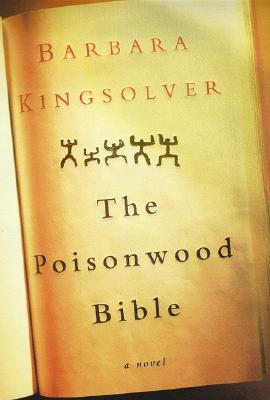This novel, written by Barbara Kingsolver, is about a Baptist preacher and his family who go to live in the Congo, where the father hopes to convert the Congolese to Christianity. The story is told from the perspectives of the wife and their four daughters and recounts their experiences and difficulties living among a people that are so different from themselves.
“If somebody was hungry, why would they have a big fat belly? I don’t know.”
- Ruth May Price (Preacher’s youngest daughter)
This book should probably be required reading for travelers (especially first-time travelers), as it has the power to help its readers become more sensitive to cultural and religious differences.
Although I have never been to Congo or anywhere else in Africa, my own experiences traveling to Mexico and India have been similar in many ways. First there is a period of bewilderment and endless questions, “What is that? What are those for? Where is that sound coming from? What’s wrong with that person?” As you begin to answer those simple questions (“That’s a prayer wheel. Those are for eating. That’s the music the gas truck plays. That person has elephantitis.”) then you can start looking a little deeper to see the why behind everything, “Why do they do that? Why does this happen? Why do they believe this?” etc.
It’s so easy just to pass something off as weird or stupid the first time you see it, but once you understand the why behind it, you sometimes even start to wonder, “Why don’t we do that back in the States?”
However, once you have had that experience, it is much easier in the future to get past the weird and into the why. That’s why I would especially recommend this book to anyone who is getting ready to travel outside country for the first time. Although your own experience may be different, the book helps you to ask yourself the right questions and see past those original impressions.
In particular, living in India right now (and especially living in the tourist town of McLeod Ganj), this book has helped me to see myself through the lens of the others living here. To some I am a friend, someone to talk to and spend time with. To others I am a teacher, someone to learn from, and to others a student, someone to teach. To many I am a tourist, I am money, I am a way to make a living. And while I admit, I can still get annoyed at the persistence of some vendors, I try my best to see things the way they might. For some my business may be the possibility of providing a better future for a child, or simply a meal for that evening. It’s impossible to know exactly who needs help the most, or who will use it in the best way. Sadly, I can’t help everyone, but I feel like at least in my attempt to see things their way, I am able to say, “no, sorry” in a more understanding way.
The novel is quite humbling, especially for the white American, but humbling experiences are some of the best. They help us to see things, places, and people in different light and to be less judgmental and more understanding of the world around us.

I love this book, and I agree with you that it should be required reading. Some of the things you learn from reading it are the best antidote for culture shock. It really is all about asking the right questions. Great post!
ReplyDelete